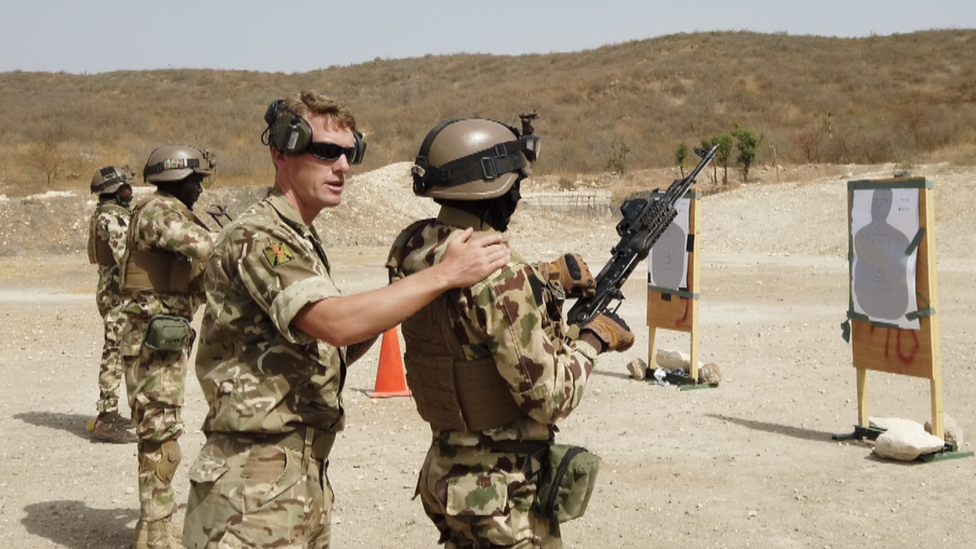Mali goes to the polls despite coronavirus fears
- Published
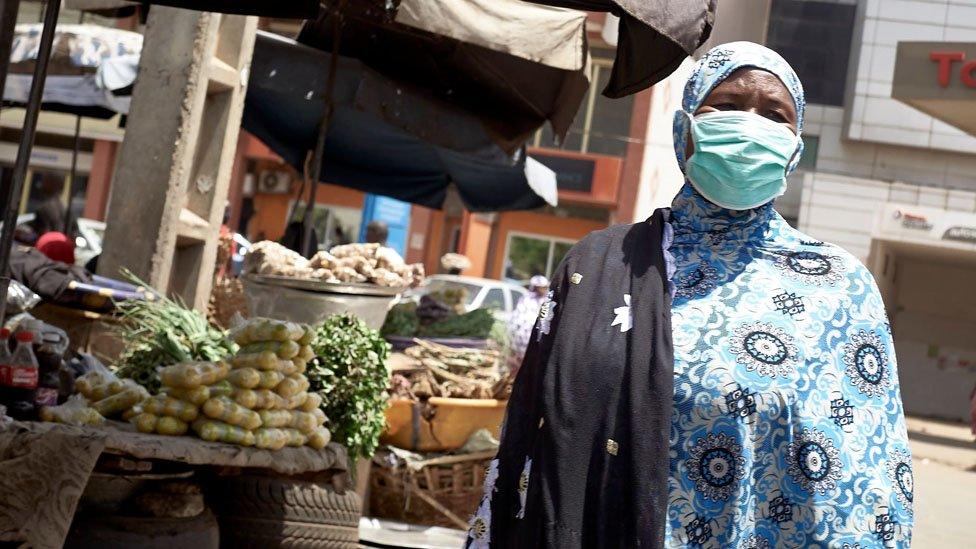
Some people have been seen taking precautions against coronavirus in the Malian capital, Bamako
Malians are voting in long-delayed parliamentary elections a day after the country's first coronavirus death.
The poll has also been overshadowed by Wednesday's kidnapping of opposition leader Soumaïla Cissé by suspected Islamist militants.
The elections were supposed to have taken place in 2018, but have been put off a number of times, mainly because of continued insecurity.
The Malian army has been battling militants in the north since 2012.
There are now 18 confirmed Covid-19 cases in Mali and there are concerns about its spread in a country with a poor healthcare infrastructure.
Earlier this week, President Ibrahim Boubacar Keïta declared a state of health emergency and imposed a curfew from 21:00 to 05:00 local time. All land borders have also been closed.
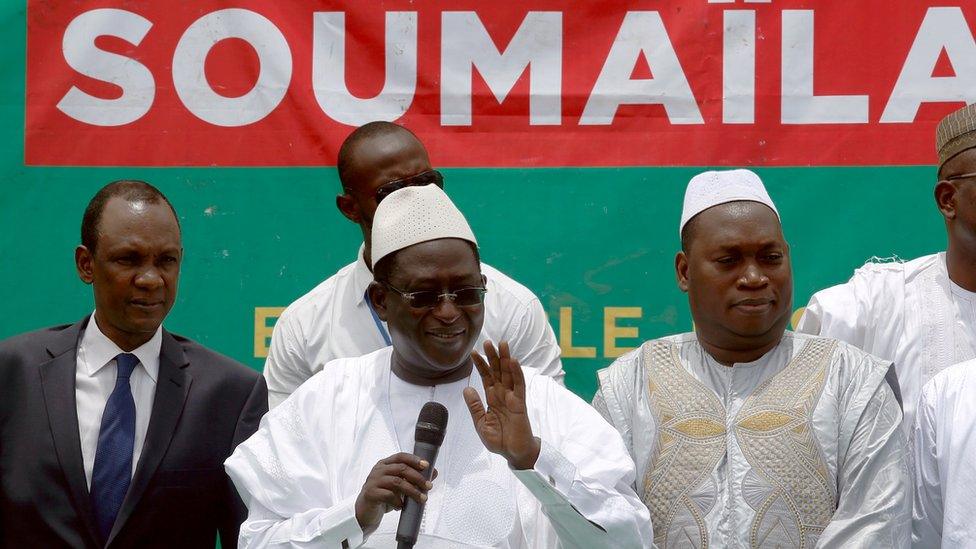
Soumaïla Cissé ran for president in 2018
Some opposition parties had called for the postponement of the poll because of the coronavirus outbreak.
But the government has said that there will be hand-washing facilities and masks available at polling stations, the AFP news agency reports.
Despite his kidnapping, Mr Cissé's Union for the Republic and Democracy, the main opposition party, called on its supporters to turn out and vote in large numbers.
"In these difficult times our country is going through, more than ever, the party's activists are resolutely urged to redouble their efforts for a massive participation," a spokesman is quoted by AFP as saying.

AFRICA TRACKER: Data from the continent
A SIMPLE GUIDE: What are the symptoms?
AVOIDING CONTACT: Should I self-isolate?
MAPS AND CHARTS: Visual guide to the outbreak

The last time elections were held for the 147-seat parliament in 2013, the President Keïta's Rally for Democracy party won a large majority.
Tens of thousands of people who have been forced from their homes by the conflict in the north of the country will be unable to vote.
Mali, along with other countries in the region, has faced an upsurge in Islamist militant violence. The military there is being supported by both a regional force and the French army.
There is also a UN force, which has been described as the most dangerous peacekeeping operation in the world.
- Published13 January 2020
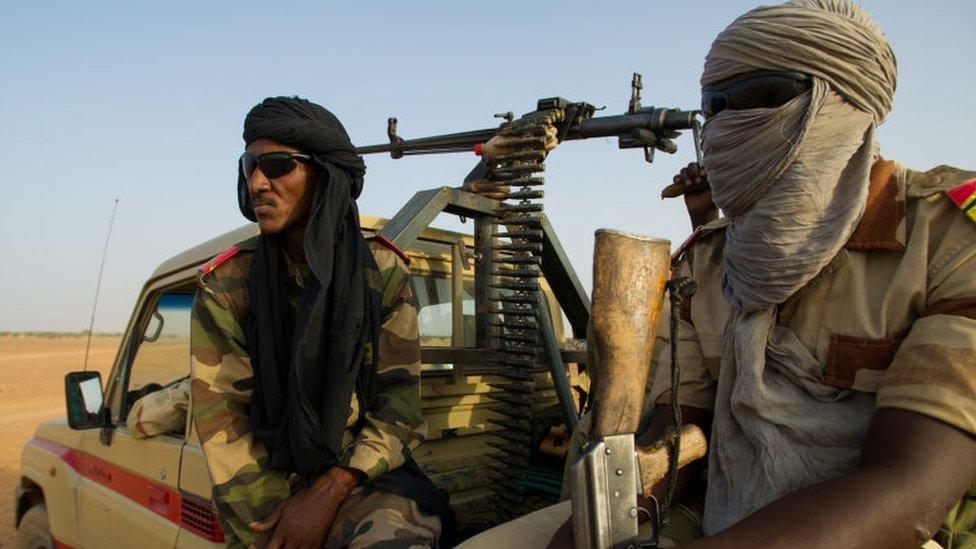
- Published28 July 2023
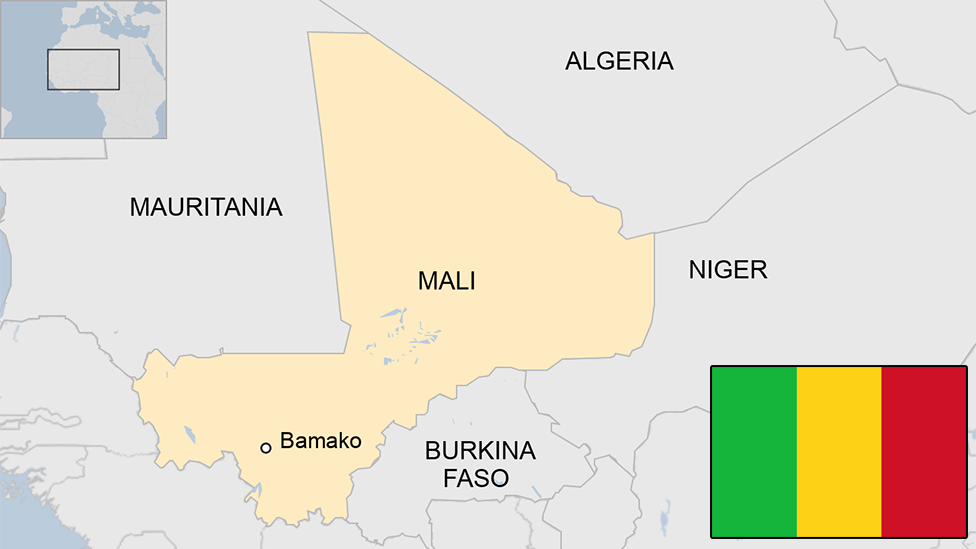
- Published2 March 2020
